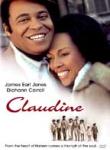
Mother's Day at the Movies 2003
Okay, I didn't actually spend Mother's Day at the movies this year. If you're as lucky as I am, and you have a terrific mother to spend the day with (if only on the phone—sorry, Mom!), you have other occupations on that second Sunday of May. But the season did get me thinking about mothers in film, and I realized that nearly all the movies I attended or rented in the weeks before and after Mother's Day added new faces, new emotions, and new conflicts to the great portfolio of cinematic Mommas. Here is a selection of ten films I recently screened, including current releases and past favorites, and some words about why they seemed especially poignant at this time of year.
For the record, my other idea for this feature was a list of favorite or most memorable movie mothers. There are certainly too many to mention, but for me, even the shortest list would have to include Cicely Tyson in Sounder, Marlene Dietrich in Blonde Venus, Juanita Moore in the 1959 Imitation of Life, Holly Hunter in The Piano and The Positively True Adventures..., Gena Rowlands in A Woman under the Influence, Divine in Pink Flamingos, and the activist mothers of Harlan County, U.S.A. If you have a favorite movie mother or Mother's Day movie, let me know at nick@nicksflickpicks.com—there could be a whole other feature to be made here!
And, also for the record, I love you, Mom! — this feature is for you.









